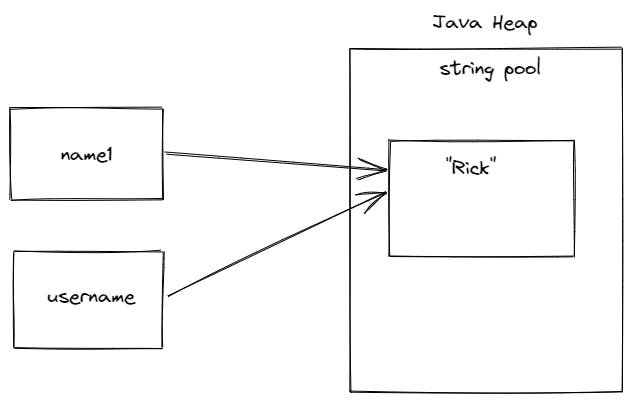Why Are Strings Immutable in Java? Detailed Evaluation for Developers
The Development of Immutable String Handling: A Critical Aspect of Software Application Growth
In the detailed realm of software growth, the handling of unalterable strings stands as a cornerstone that has undergone significant evolution gradually. From its humble origins to the facility challenges encountered in very early executions, the trip of unalterable string adjustment has been a crucial facet of software engineering. As we browse through the historical landscape of this fundamental concept, mapping the developments, security ramifications, and emerging trends, we locate ourselves at a juncture where the intrinsic worth of comprehending this development comes to be significantly apparent.
Beginnings of Unalterable Strings
The concept of unalterable strings traces back to the very early days of shows languages when designers sought to improve the dependability and safety and security of information managing mechanisms. Unalterable strings describe strings that can not be changed after they are produced. This fundamental idea was presented to deal with worries pertaining to data honesty and protect against unplanned alterations to essential info saved as strings.

Furthermore, unalterable strings add to improving the general safety and security of software application systems (Why are strings immutable in Java?). By stopping unapproved parties from damaging delicate string information, immutable strings help minimize the threat of information violations and unauthorized access to secret information. This foundational idea continues to play an important role in contemporary programming languages and stays a keystone of robust and secure software application growth techniques
Very Early Obstacles and Solutions
One of the key challenges in dealing with unalterable strings was handling memory efficiently. Furthermore, guaranteeing that strings stayed unaltered verified to be intricate, specifically when numerous parts of the codebase needed to accessibility and modify data.
To resolve these obstacles, developers started applying information security methods to secure delicate details stored in immutable strings. By incorporating file encryption and hashing techniques right into the handling of immutable strings, programmers considerably boosted the safety and reliability of data within software program systems.

Improvements in String Immutability
In software application growth, a remarkable advancement in the handling of immutable strings has actually arised through improvements in data security and hashing techniques. By using safe hash algorithms like SHA-256 or cryptographic techniques such as AES encryption, developers can make certain that sensitive details kept in immutable strings stays tamper-proof and safe and secure. These improvements have strengthened the integrity and privacy of information within applications, particularly in industries where data safety is critical, such as financing, health care, and cybersecurity.
Additionally, innovations in string immutability have led the means for improved efficiency optimization. find this Immutable strings permit a lot more reliable memory administration and caching strategies, minimizing the expenses connected with constant string manipulations (Why are strings immutable in Java?). This optimization not only improves the total responsiveness of software applications but likewise adds to far better scalability and source use
Security Implications and Finest Practices
With the foundation laid by improvements in string immutability, comprehending the safety and security ramifications and executing ideal practices becomes paramount in guarding delicate data within software application applications. Immutable strings play a critical function in boosting security by stopping unauthorized adjustments to data, ensuring information integrity throughout the application's lifecycle. By using unalterable strings, developers can reduce typical vulnerabilities such as injection attacks, buffer overflows, and information tampering, which are usually exploited by malicious stars to jeopardize systems.
This includes securing information at remainder and in transportation, executing correct gain access to controls, employing safe coding techniques, and regularly updating software components to spot known vulnerabilities. By incorporating these protection actions and finest methods into software development processes, companies can much better safeguard their information assets and decrease the risk of safety breaches and information leakages.
Future Trends in String Handling
Amidst the ever-evolving landscape of software application advancement, the trajectory of string handling is positioned to witness substantial innovations and technologies. Designers are exploring new algorithms and data frameworks to enhance the rate and performance of string operations.
Moreover, another trend coming Home Page up is the assimilation of expert system (AI) and artificial intelligence (ML) in string handling tasks. AI-powered tools are being created to automate and improve different string control processes, resulting in raised efficiency and precision in software development operations.
Additionally, there is an expanding emphasis on boosting the protection elements of string handling with progressed security strategies and secure coding techniques. As cyber threats continue to progress, ensuring the honesty and discretion of data within strings is ending up being a top priority for programmers. By adopting robust safety measures, such as encryption at rest and in transit, designers can alleviate the risks related to string adjustment vulnerabilities.
Conclusion
In final thought, the advancement of immutable string handling has actually been a crucial facet of software advancement, beginning with its origins to the advancements made in the last few years. Early challenges have actually been addressed via cutting-edge solutions, bring about improved security techniques in taking care of strings. It is crucial for developers to remain upgraded on the most current fads in string immutability to ensure the robustness and safety and security of their software applications.
Immutable strings refer to strings that can not be transformed after they are created. Why are strings immutable in Java?. By avoiding unapproved parties from meddling with delicate string information, immutable strings assist mitigate the risk of data violations and unapproved accessibility to confidential info. By integrating encryption and hashing techniques into the handling of unalterable strings, designers considerably enhanced the protection and reliability of data within software program systems
Unalterable strings permit for click here to read extra effective memory monitoring and caching strategies, minimizing the expenses linked with constant string manipulations. Unalterable strings play a vital duty in improving safety and security by protecting against unapproved alterations to information, making sure data stability throughout the application's lifecycle.